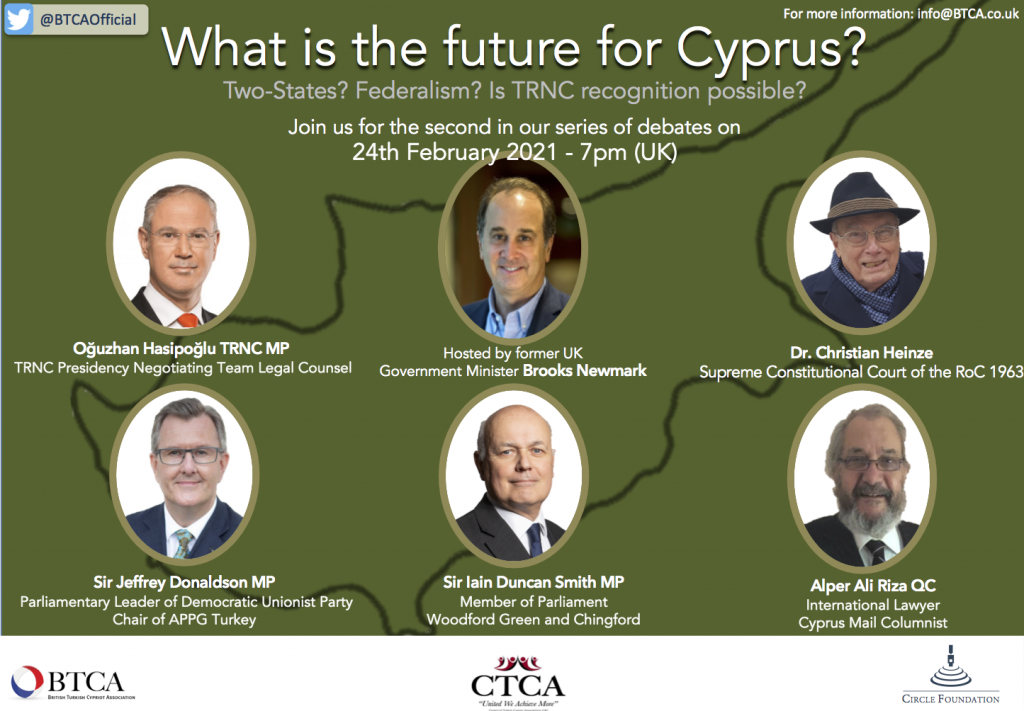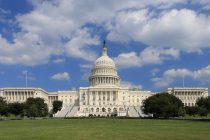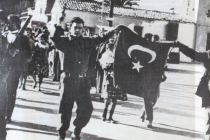Earlier this month, a ‘Cyprus plan’ started to appear in a variety of publications in Cyprus, including Turkish Cypriot daily Yeni Düzen.
The high level ‘7-point plan’ outlines a confederal solution loosely based on the Belgian model for Cyprus, has been attributed to the United Kingdom (UK) – one of Cyprus’ thee Guarantor Powers, with aspects to satisfy both sides on the island.
Turkish Cypriots get “sovereign equality” of the two constituent “community states”, coupled with the right to veto international decisions and run their own internal affairs, with some international representation, much like Scotland or Northern Ireland.
For the Greek Cypriots, there is the the end of unilateral intervention and foreign troops, together with the territorial gains and “emotional bonds” used as one of the key criteria for determining property ownership.
Although the UK has not publicly confirmed it is behind the draft plan, tellingly neither has the Foreign Office dismissed the reports.
What’s in the 7-Point “UK Plan” for Cyprus?
According to the Yeni Düzen article (“İngiltere’den 7 maddelik Kıbrıs planı” Kaynak: “İngiltere’den 7 maddelik Kıbrıs planı”, 8 February 2021)
- In Cyprus, like the two “equal founding partners” of 1960, today there are “Community (Communal) States”, and the Federal Republic of Cyprus will consist of these two equal “Community Sovereign States”. As the Republic of Cyprus evolves into the “Federal Republic of Cyprus”, the membership of the United Nations and the European Union will continue with this new structure without the need for a new application.
- The federal government will have defined powers such as foreign policy, economy, security, and citizenships. Two co-chairs will chair the Council of Ministers, comprising of 6 Greek Cypriot and 3 Turkish Cypriot ministers. A “representative” President of the Federal Republic of Cyprus can also be elected.
- Belgium’s federal system where the Walloon and Flemish communities appoint their ministers will be the model used. It is also recommended to examine the parliament in Northern Ireland. The Federal Parliament will be a single 36-member chamber comprising of 24 Greek Cypriots and 12 Turkish Cypriots representatives.
Cumhurbaşkanı @ersinrtatar, Birleşik Krallık Dışişleri Bakanı Dominic Raab’ı kabul etti. Saat 15.00’te başlayan görüşme devam ediyor. pic.twitter.com/PcFDeA5yYV
— KKTC Cumhurbaşkanlığı (@KKTCCB) February 4, 2021
- Both community states will have the right to make their own agreements. Like Scotland, Wales and Northern Ireland have their own teams in the UEFA Cups or other sporting events, these community states will be able to participate in international organisations and be represented at international sporting events.
- The federal government’s responses to international relations and European Union decisions will be based on unanimous backing from the two Community states. If there is no consensus, the federal government will abstain from the international vote within the EU, as in Belgium.
- Foreign soldiers on the island of Cyprus will leave the country following the new agreement. Turkey and Greece will remain a limited number of troops in Cyprus during a 10-year transition period and the right to “unilateral intervention” will cease to exist.
- With the return of Maraş/Varosha and Güzelyurt/Omorfo [to Greek Cypriots], the percentage of the Turkish Cypriot state will be between 28.2% and 29.2%. For ownership, emotional bonds will be recognised and resolution of the property issue will proceed with a “refund-compensation-exchange” formula.
The UK’s public position on Cyprus
Responding to a question from T-VINE about whether the UK was behind the 7-point Cyprus plan, a spokesperson for the Foreign, Commonwealth and Development Office (FCDO said: “We’d not comment on speculative reporting about the talks.”
Instead the FCDO spokesperson referred T-VINE to the UK’s public statements about Cyprus as a means of establishing the British government’s position on the talks, including the Foreign Secretary Dominic Raab’s press conference statement in South Cyprus on 4 February, where he said the UK wanted “to see a permanent, enduring and lasting end to the dispute.”
Stating the need for “for regional stability, security and prosperity”, the British Foreign Secretary urged all sides to come to the UN talks “with a willingness to demonstrate flexibility and compromise”, adding that he was “very heartened by my conversations at the scope for that.”
The UK is committed to supporting a just and lasting solution to the division of Cyprus. I met the Republic of Cyprus President @AnastasiadesCY today to reiterate UK support and urge an open and flexible approach to #Cyprus Settlement talks. pic.twitter.com/tnQMpn3QSt
— Dominic Raab (@DominicRaab) February 4, 2021
Mr Raab reiterated the UK’s support for the unification of the island, stating that “A reunited, Cyprus can achieve its full potential as a beacon of democracy, stability, prosperity.”
The Foreign Secretary also said that the UK will “work with the Cypriot people and the UN of course, to finally resolve the Cyprus problem and achieve a just and lasting settlement.”
In January, the United Nations announced its intention to bring the two Cypriot sides, the Turkish Cypriots and the Greek Cypriots, and the island’s three Guarantor Powers, Turkey, Britain and Greece, together for an informal summit to establish whether sufficient common grounds exist to initiate a new round of formal talks.
The UN 5+1 Cyprus summit has been scheduled to take place sometime in March 2021.
BTCA Cyprus panel to debate the “UK Plan” tonight
The British Turkish Cypriot Association will be debating the “UK Plan” tonight, 24 February 2021, as part of its monthly debate on, “What is the Future for Cyprus?’.
The BTCA panel will feature five eminent speakers:
- Oğuzhan Hasipoğlu, an MP for the ruling National Unity Party (UBP) and a member of the Turkish Cypriot negotiation team
- Alper Ali Riza, British Cypriot barrister and Cyprus Mail columnist
- Chingford and Woodford Green MP and former Conservative Party leader Sir Iain Duncan Smith, who has frequently spoken up for Turkish Cypriot rights including the need for direct flights between the UK and North Cyprus
- Constitutional law specialist Christian Heinze, who previously served in the Supreme Constitutional Court of the Republic of Cyprus in 1963
- Sir Jeffrey Donaldson MP, who chairs the All Party Parliamentary Group (APPG) for Turkey
Chairing the debate is former government minister Brooks Newmark, who will host the event in a ‘Question Time’ format, posing a series of topical questions to the panellists.
Where to watch the BTCA debate
‘What is the Future for Cyprus?’ is being broadcast at 7pm UK time (9pm Cyprus) on Zoom, with pre-registration required. Click here to register.
Alternatively, people can watch the debate on terrestrial Turkish Cypriot television. BRT 3 will broadcast the debate live in English, while BRT 2 is offering a live simultaneous translation into Turkish for Turkish viewers.
Kanal T will do a later broadcast of the debate in English tonight, at 9pm UK time, with a repeat on Sunday, 28 February at 8.30pm UK time.
Main picture, top, of Stephen Lillie, the British High Commissioner to Cyprus, talking at a reception in Cyprus to celebrate the 60-year-old ties between the UK and the Republic of Cyprus, 08 Oct. 2020. Photo © Facebook / British High Commission





